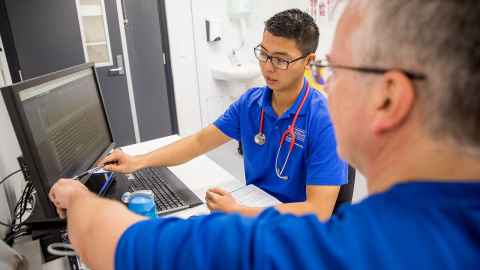Clinical Exercise Physiology
Clinical Exercise Physiology focuses on the application of exercise to people with a range of health conditions.

Subject overview
Clinical Exercise Physiology is a science-based discipline dedicated to understanding how chronic health conditions affect both acute and long-term responses to physical activity and exercise, and how physical activity and exercise can be used to manage those conditions.
Coursework focuses on exercise physiology, pathophysiology, behaviour change and physical activity rehabilitative strategies. Alongside this, practical experience is also gained at the Department of Exercise Science’s state-of-the-art Health and Rehabilitation Clinic.
From the earliest stages of the programme, you will provide exercise rehabilitation to clients. Through work-integrated learning in a clinical team environment, you will learn to design and implement exercise prescription effectively. In this way, you will develop, maintain or improve physical function in people living with chronic health conditions.
Where can Clinical Exercise Physiology take you?
Clinical Exercise Physiologists work in hospitals, clinics, or fitness centres, with sporting organisations, or in private practice.
People who would benefit from the services provided by a Clinical Exercise Physiologist are often referred by their primary healthcare provider, who supports the use of exercise to provide relief from a wide range of chronic health conditions. You could find yourself working with people who are living with heart disease, hypertension, peripheral vascular disease, lung disease, stroke, multiple sclerosis, cerebral palsy, arthritis, and metabolic or neuromuscular disorders.